SILHOUETTES OF THE STAGE
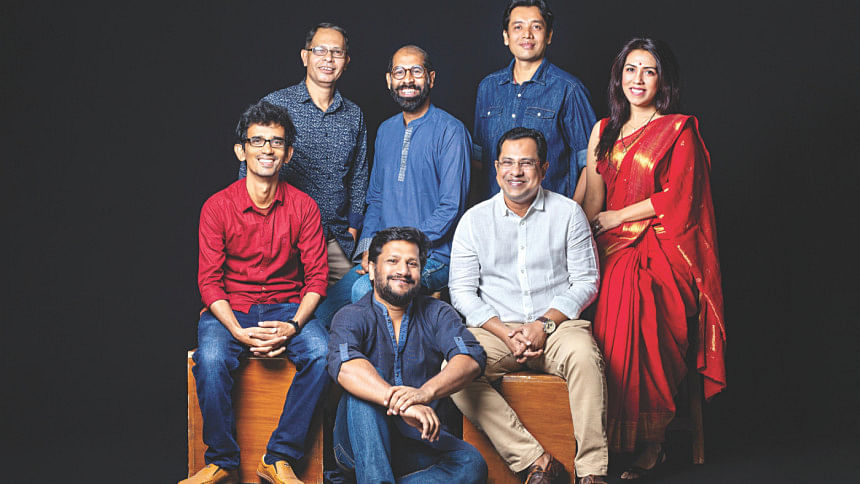
Kazi Toufikul Islam Emon: Khoabnama
I already had the script ready for Khoabnama, and wanted to make it for a while now. So, when Nagorik came up with this wonderful project, I seized the opportunity. The selection process was elaborate; the jury board did not simply decide by reading my script, they also called me to learn more about my concept, execution plan and design for the play. As a theatre director, it is always a blessing to have a mentor for guidance, and the highlight of the entire event for me was getting Tareq Anam Khan as our dramaturge. Being able to share my idea and getting both positive and negative feedback from him was a great learning experience for me. Due to my involvement with the theatre troupe Aranyak, Mamunur Rashid has always been an inspiration to me. I have also drawn inspiration from the works of Nasiruddin Yousuff Bachchu, and I appreciate the directorial approach of Syed Jamil Ahmed. Back in the day, Bangladeshi theatre had passionate artists. I feel what we lack the most nowadays is focused and dedicated members in a theatre troupe. I do not blame the younger generation for this. If an artist is not getting the monetary incentive for their hard work, then it is naturally difficult for someone to take this art form as a profession. To take professional theatre to a certain standard in Bangladesh, we require both government and corporate support. Government can aid by providing subsidies and corporate support for promotional activities.
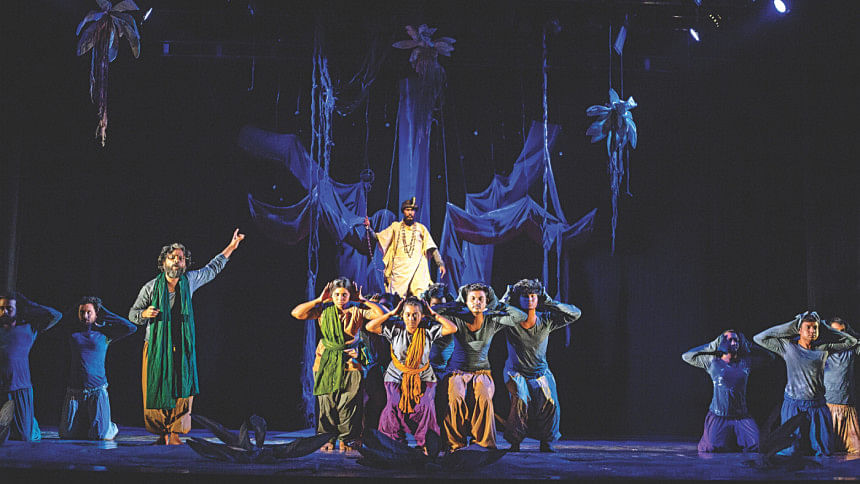
Hridi Huq: Akashey Phuitese Phul - Letokahon
This festival was truly a remarkable event. I believe that through this initiative, we got the opportunity to showcase so many theatre plays. It was a great achievement for the theatre industry. When Nagorik came up with this idea, they were looking for theatre directors who have new theatre plays in mind. So, I took the opportunity to send my proposal, and the jury board selected my play to be part of the festival. After the selection process, each director was given a dramaturge who moderated the plays. Asaduzzaman Noor was the one for my theatre team. It was my mother, Lucky Enam, whose work really inspired me to join the world of theatre. Beside my family, the theatre troupe, Nagorik Natya Sampradaya, also helped me grow as a theatre director. Dr. Israfil Shaheen has also been a role model to me. As a theatre director, the struggle that I often face is to find a place to do the rehearsals. It has become a common problem for all of us. During the pre-production stage, we lack rooms for practising, and when it's time for the stage performance, the availability of well-maintained halls becomes an issue. I believe that we can have professional theatre in our county, but it will take time to establish. If we look back, theatre has come a long way from where it started. I believe the current situation of Bangladeshi theatre will change and someday in near future, with our collaborative efforts, the industry can reach greater heights.
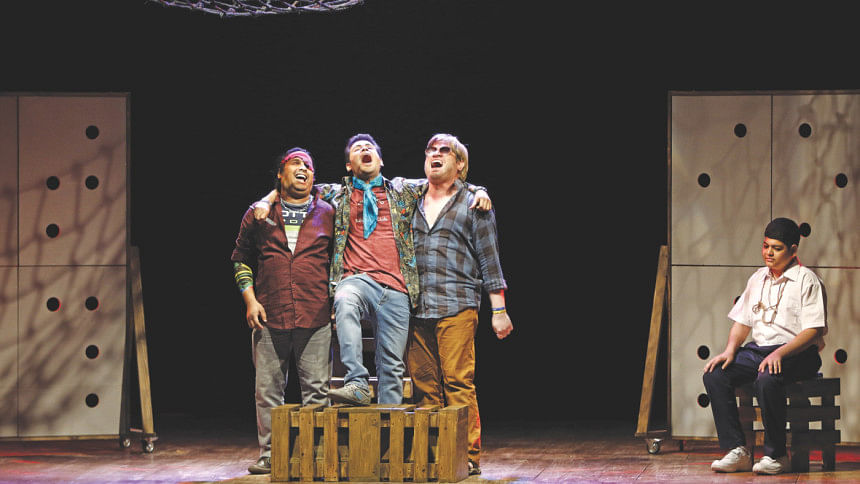
Pantha Shahriar: Kalo Joler Kabbo
I always enjoy watching any good play. I draw inspiration from works done by different directors. If I have to pick one person, I would have to say that Aly Zaker has always been a role model for me. Yousuff Bacchu's set design always mesmerises me. From the new generation, I really admire the works of Shahin and Shagor. One of the major constraints that is holding us back is the lack of well-maintained halls and the choice of dramas that the audience gets to see. We are losing theatre lovers because we do not showcase good dramas to the masses. We need reshuffling of the committee members who will help in promoting new talents. As mentioned earlier by others, we need government support and we understand the importance of promotional activities. When it comes to taking theatre as a profession, it might not be a choice now, but with time and the rise of the industry, people might reconsider.
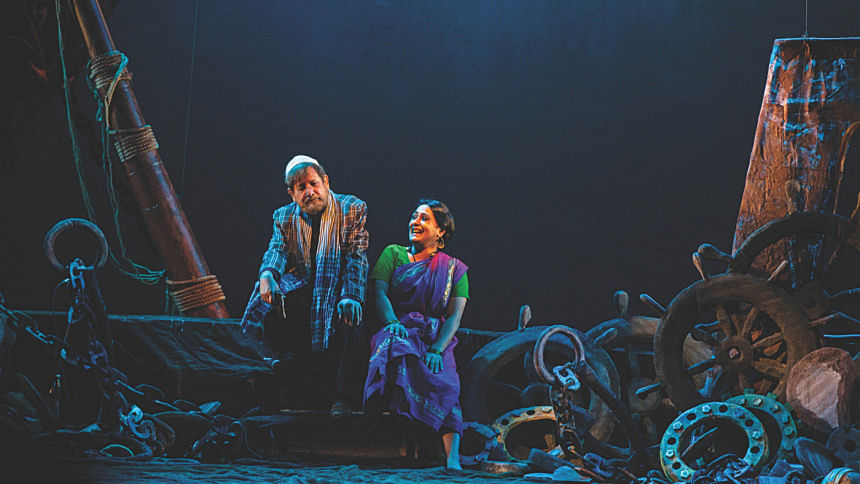
Shamim Shagor: Radharmon
This festival was different from any other project I took part in so far. The entire journey was motivational and unique for two reasons: all the plays featured in the festival were new and all the people associated with this project helped me learn and enhance my skills. My theatre journey began following the footsteps of Sheikh Mohiuddin. He was the one who introduced me to contemporary theatre. I take inspirations from different aspects of dramas by different directors, like Saydur Rahman Lipon, Biplob Bala, Kamaluddin Nilu, Mostafiz Shahin and Ataur Rahman. Syed Jamil Ahmed's directorial work really inspires me; his plays are like a masterclass to me. I had the opportunity to work with many theatre troupes, both in Dhaka and rural areas of Bangladesh. The shortage of members in the troupes has always been a major problem. When we started doing theatre, we were lucky to have received the guidance and encouragement of great theatre activists who helped us understand the commitment of this art. However, we have failed to pass the same virtue on to the current generation. I agree with what others have mentioned previously about the availability of halls, government support and marketing activities.
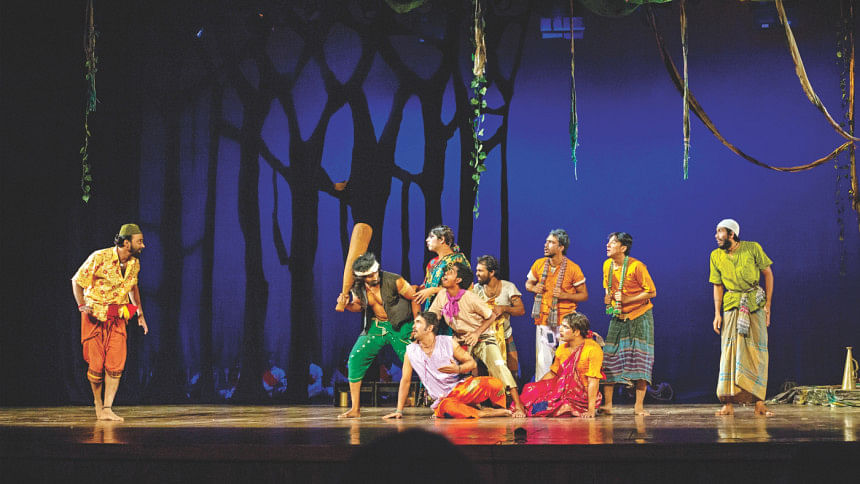
Saydur Rahman Lipon: Arupratan
As mentioned earlier by others, the journey that we all made was indeed a memorable one. While I was writing the synopsis of the play, I also had to mention what made me write the script and what inspired me to make this play. The pre-production process had an academic approach which helped me explore myself, grow as a director and learn more as an artist. I was fortunate to get my academic learnings from Syed Jamil Ahmed. His virtue of stage presence and communion with actors proved to be very inspirational for me. Selim Al Deen holds a special place in my heart. As a director, I feel that the works of Pavel are masterpieces. Shahin and Shuvashis also encourage me. I believe two things can take theatre to greater heights: time and process.
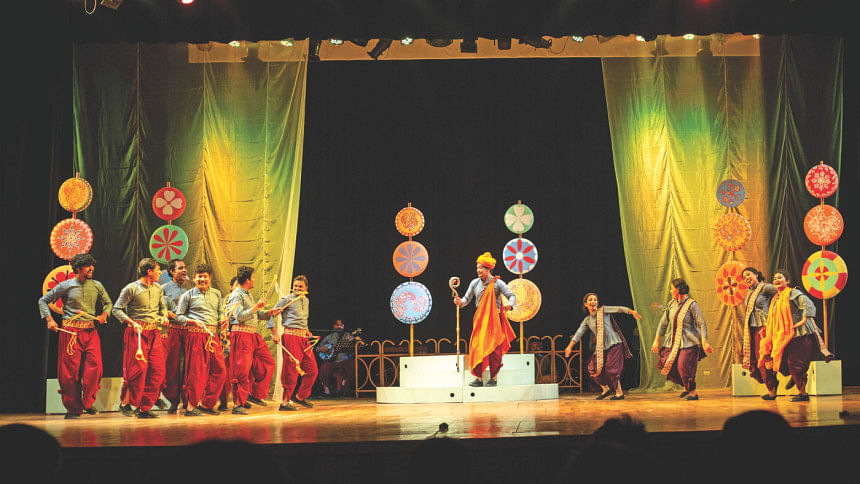
Shuvashis Sinha: O Mon Papia
This festival was interesting to me, and I really enjoyed being a part of it. Even though we had dramaturges moderating our plays, our ideas were always appreciated and we had the independence of showcasing our work creatively. I submitted a different kind of idea; my play was based on a myth from Mozambique, Africa. The jury was concerned whether the audience will be able to connect and how relevant it will be. However, they sat with me and I proposed my idea. I wrote an elaborate detailed description of what I wanted to illustrate on stage, and eventually, all worked out perfectly. I derive inspirations from so many people. To name a few, Selim Al Deen, Syed Jamil Ahmed, Mamunur Rashid, Yousuff Bacchu and Azad Abul Kalam. The thirst to keep the art alive and take theatre towards overarching glory is what is we need to overcome the dire situation of Bangladeshi theatre industry. The collective work of passionate artists will help the survival of theatre. When government and society values the platform and the art, only then I feel theatre can be done professionally.
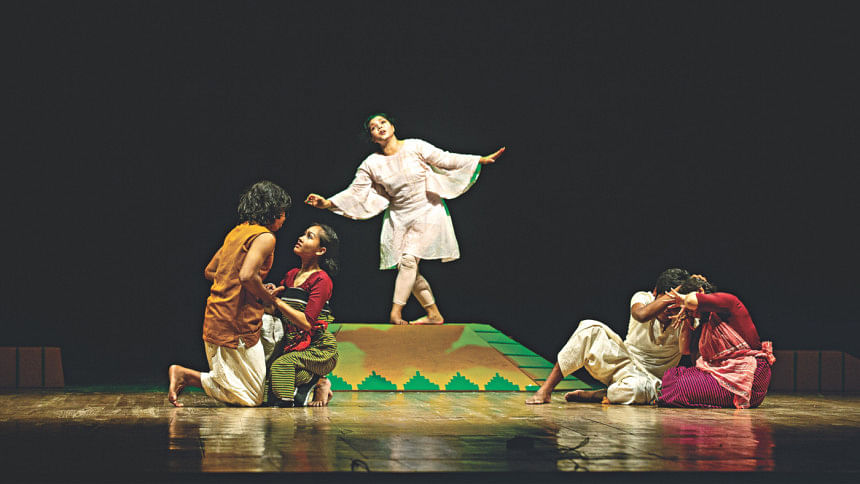
Mostafiz Shahin: Lottery
In my theatre career, I have been blessed with the opportunity to work with so many big names. Kamaluddin's set design always leaves me awe-inspired. Whenever I see the works of Lipon, I learn how to pass energy to actors. Aly Zaker, Khaled Khan, Sudip Chakraborty are also names I cannot leave behind while speaking of inspirations. While we have been talking about the problems that we are facing in the Bangladeshi theatre industry, I want to highlight how we can overcome this situation. Patronising theatre is the first step in fixing this problem, and of course, collaborative effort is needed to move forward.
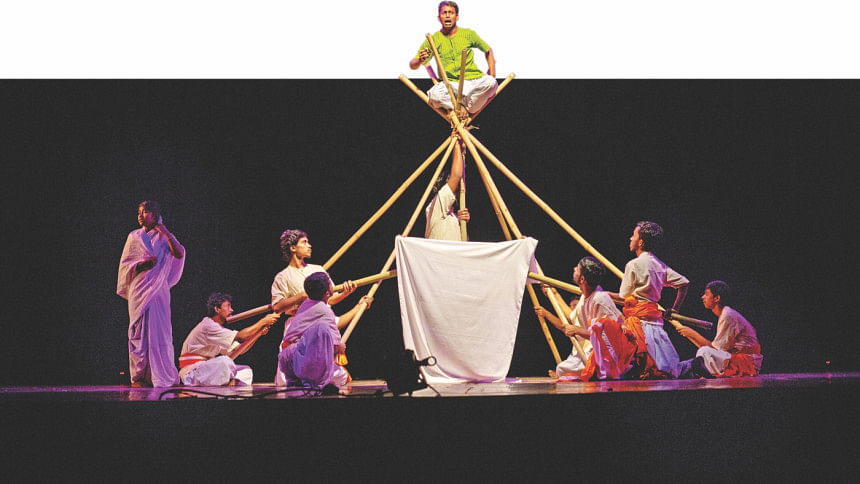

 For all latest news, follow The Daily Star's Google News channel.
For all latest news, follow The Daily Star's Google News channel. 



Comments